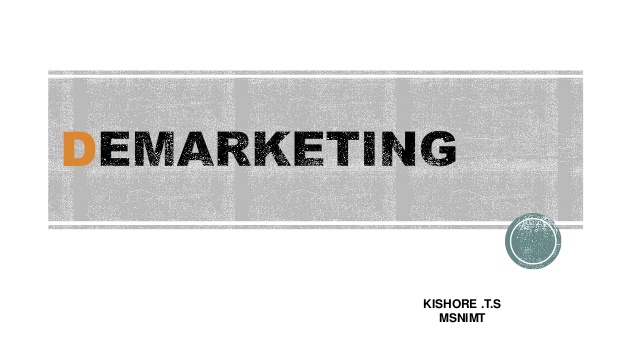If you’re looking for salespeople or developing a successful sales plan, you’ve probably come across the term sales development representatives(SDRs). And you’d almost certainly be asking some questions like what SDRs do, and whether they can be outsourced. We’ll answer these and other questions here.
What Is An SDR?
Inside sales professionals who focus only on sales prospecting are known as Sales Development Representatives (SDRs) or Business Development Representatives (BDRs). SDRs, as opposed to sales executives (quota-carrying salespeople), seek out fresh leads, qualify them, and move them farther down the sales funnel.
SDRs have well-researched knowledge about the prospect and company before contacting them because they are the first face of your organization. They understand the industry, sales process, and competition well enough to conduct relevant talks.
SDRs phone and email prospects, guiding them through the early phases of the sales funnel and preparing them to speak with a closing. The Key Performance Indicator (KPI) is based on the number of qualifying opportunities (SQL) they generate each month.
Having an SDR staff also ensures that your sales leaders are focusing their efforts on qualifying prospects and meeting targets, rather than prospecting.
What Is The Role Of SDRs?
Any SDR’s primary job is to engage potential customers, determine if they are a suitable fit for additional sales talks, and pass them on to sales executives. Furthermore, SDRs must provide unique and personal value to each prospect they contact in order to establish that their firm and product are worth the prospect’s attention. A recommended practice is to always start with your prospects’ needs, goals, and interests.
Individual SDR responsibilities, however, change based on their nature.
SDRs are classified into two types:
#1. Outbound SDR
An Outbound SDR is someone who works on outbound campaigns. Their tasks include:
- Actively engaging with potential buyers through multiple platforms.
- Interact with prospects and provide value
- CRM operations
- Appointment setting
- Reporting
- Sales intelligence and personalization
#2. Inbound SDR
An inbound sales development representative (SDR) is someone who waits for leads to engage with the organization through inbound channels. His tasks include
- Receiving incoming communications from prospects, speaking with them, driving value scores, and qualifying leads.
- Creating appointments or send leads to the sales team in CRM reporting sales intelligence and personalization operations
For better understanding, here are the tasks and responsibilities of SDRs
- Find, identify, and prospect for new customers.
- To conduct productive and relevant interactions, SDRs should be well-versed in the prospect’s industry, sales process, competition, and intriguing events.
- Increase the number of phone calls and emails you send.
- SDRs should contact potential leads or follow up with people who have asked about your organization and offerings via phone, email, and social media as soon as possible.
- Plan high-quality meetings and appointments.
- To filter or exclude prospects and set up quality meetings with sales executives, SDRs should jot out a list of smart questions to ask during the call, or construct a sales call script.
Skills and Qualities Of SDRs
SDRs must be quick on their feet, succeed in online dialogues, master tools, be exceptional content finders, and have a good attitude in the face of a negative interaction. Here are a few abilities that every SDR on your team should have.
#1. Prospecting abilities
SDRs should be fluent in and masters of the sales language – What are the buying signs to be aware of? What terms should you use to entice clients to buy? When is it OK to ask probing questions?
#2. Listening skills
SDRs should carefully listen to each conversation with the prospect, interrupting only when necessary for clarification and asking probing questions to gain insight into the buyer’s mind.
#3. Product knowledge
Before crafting effective pitches and connecting customers’ needs to your solution, sales representatives need to have enough knowledge of the characteristics, benefits, and weaknesses of your product.
#4. Webinars
Webinars require people to submit their email addresses, making them an ideal lead-generation activity. Timely webinars with relevant themes and competent speakers can help you create a brand for your company.
#5. Time management
The ability to optimize time boosts sales productivity and fosters a high-performance atmosphere. This soft skill, when combined with CRM software and other technologies, provides a huge ROI for any firm.
#6. Communication abilities
Over the phone and over email, I am skilled at establishing rapport and initiating a dialogue. Good communication also helps to avoid objections by demonstrating how your solution can solve a business problem.
Tools For SDRs
Sales development agents must work hard to generate qualified leads and send them on to sales executives in order for the deals to be closed. Nevertheless, SDRs are dealing with more than just that. Sales professionals must also conduct research on prospects before contacting them, follow up on cold and warm leads, and respond to those who have expressed interest.
Because the entire sales prospecting process can be exhausting and time-consuming, SDRs want productivity tools that can expedite the process. SDRs cannot afford to waste time on training and adaptations, thus these tools must be straightforward and user-friendly.
Let’s take a look at three must-have tools for increasing sales representative productivity.
#1. Sales Navigator on LinkedIn
SDRs require a diverse set of sales productivity tools to assist them reach their goals with minimal time and effort. And LinkedIn Sales Navigator is a must-have for any SDR. LinkedIn Sales Navigator delivers lead recommendations based on SDRs’ preferences. SDRs can then generate a list of sales leads, find the perfect prospect to engage with, and contact them via InMails. Even before the initial talks, LinkedIn Sales Navigator can help you locate and contact prospects.
#2. Technological tools
For B2B sales, you must understand the technology that your prospects use. And free technologies like Datanyze, BuiltWith, and Ghostery excel at this. Datanyze, for example, tracks a much broader spectrum of technologies and can provide firm statistics such as personnel count, revenue range, industrial and social activities. SDRs can approach prospects with valuable data and begin an effective dialogue using technographic tools.
#3. CRM Application
Because the majority of sales representatives’ job focuses on prospects and communicating with them, sales reps require a centralized database to store and access lead data as needed. A CRM is an excellent tool for this and much more. A CRM is also a sales interaction tool that enables SDRs to build and send campaigns, track email open and click rates, make phone calls, and schedule meetings with sales leaders.
What Is The Role Of SDRs in Sales?
Sales cycles have lengthened, and the number of decision-makers involved in a single transaction has increased. In addition, new communication avenues have emerged. It is also becoming increasingly difficult to contact a prospect.
There are many potential clients at the beginning of the sales pipeline, but only a handful will make it to the buying stage. A sales development rep must devote significant time to reaching out to them through multiple means of communication.
As a result, there is an increased demand for sales expertise. Teams created an SDR role to handle dozens of leads every day, sift them out, and book appointments with the best candidates. Some companies build their own SDR teams, while others opt to outsource.
Outsourced SDRs
In recent times, firms are finding it more difficult than ever to stand out and receive the qualified leads they deserve. Businesses must be more adaptable and flexible than ever before if they are to succeed. Hiring outsourced SDRs can assist you with this.
People must be aware of your existence if you want to scale your business and increase revenue. But, more importantly, they must desire to buy anything you have to offer. Of course, inbound marketing plays an important role in this. Your sales crew, on the other hand, is an essential and frequently overlooked component of the equation.
Hence, if you want to expand your product or service-based business, you must have a strong sales team on your side!
But what if you lack the resources to find, hire, and train excellent in-house sales representatives? And what if you don’t require a full-time team all year? That is when outsourced SDR firms come in!
Not only may outsourcing SDRs save you up to 70% more than hiring an in-house sales rep, but they are often more talented, more experienced, and have access to more resources, which translates to more leads and conversions!
Here’s all you should know about outsourced SDRs
What are Outsourced SDRs?
Outsourced SDRs (sales development representatives) are a low-cost solution for businesses who cannot afford in-house sales representatives or do not require an entire team all year.
Typically, a company will hire a third-party SDR firm to manage a group of sales development agents. This team of SDRs can consist of a single representative or a group of five or more. The size of the team is entirely determined by the needs and finances of the company.
SDR outsourcing firms can provide considerable benefits to organizations with limited sales budgets. When you outsource your sales agents, you save time and money on selecting and training the proper person. All of that is handled by a third-party company!
B2B and SaaS organizations, on the other hand, may find it beneficial to hire an outsourced SDR provider during a moment of rapid expansion. While the company employs and educates new in-house reps, the extra outsourced sales reps help to fill their pipeline.
Outsourced SDRs vs. In-House SDRs
Outsourced SDRs are sales representatives who work for a third-party organization. In contrast, in-house SDRs are sales representatives that you must discover, interview, hire, and train yourself. As a result, outsourced SDRs are virtually always less expensive than in-house SDRs.
Who Is In Charge of Outsourced SDRs?
When you outsource your sales development representatives to a third-party organization, they manage everything, unlike when you deal with in-house SDRs.
Outsourced SDR firms ensure that you do not have to:
- Spend countless hours posting on job boards.
- Interview candidates with minimal qualifications
- Do any necessary onboarding.
- Train SDRs
- Micromanage sales representatives.
- Settle for the number of talent and experience you can afford if you’re on a tight budget
All of that will be handled by the outsourced SDR provider!
Furthermore, because their entire business is to sell for you, they will most likely supply their sales team with the necessary resources and technology. They will relieve you and your company of all stress, allowing you to focus on what you do best: creating a fantastic product or service.
It is vital to note that someone from your company will be responsible for managing the outsourced SDR company in terms of defining goals, reviewing progress, and ensuring that those goals are met. Among the companies that provide outsourced SDR services are:
- Belkins
- SalesRoads
- Martal Group
- Operatix
- Uproar Partners
- Leadium
- Bandalier
In Conclusion,
SDRs are essential members of a sales team. They work at the start of a sales pipeline. Outbound SDRs are in charge of outreach and securing appointments with potential customers who are a good fit. Inbound SDRs use the same logic to filter incoming questions.
Related Articles
- CUSTOMER FINANCING: Definition, Types & Importance
- BUSINESS ACCOUNTANT: What It Is, Services, Degree, and Salary
- PPC MANAGEMENT: Detailed With The Top PPC Management Tools
- Advantages and disadvantages of outsourcing customer service






